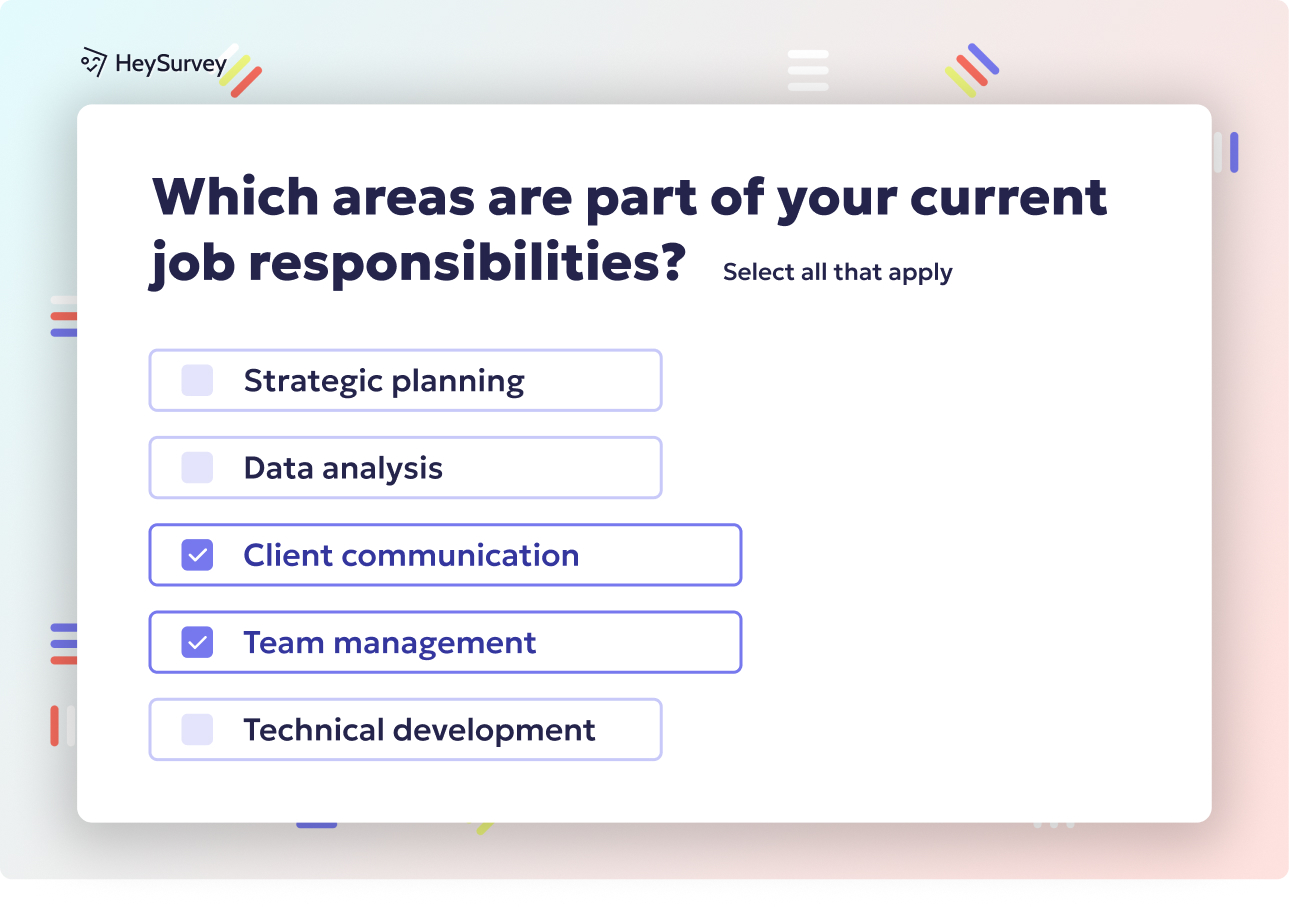31 Sleep Survey Questions: Types, Uses & Expert Samples
Explore 25+ expert sleep survey questions covering types, uses, and samples to enhance sleep research and improve sleep quality outcomes.
Sleep Survey Questions: Boosting Sleep Research & Improvement
Unlock deeper insights into sleep health, habits, and quality using expertly crafted sleep survey questions. Elevate improvement strategies for individuals and organizations.
Introduction: Why & When Sleep Surveys Matter
Let’s face it—how well we sleep shows up everywhere, from how sharp we think at work to how we manage stress and our long-term health. It’s no wonder more employers, researchers, and wellness apps now ask about sleep assessment questions rather than rely only on high-tech devices.
When choosing between sleep surveys and wearables, clinics may start with a sleep questionnaire to spot patterns and only use gadgets for trickier cases. Others, like app developers, want snappy questions that measure progress between updates. This guide covers the most useful survey types, including the classic sleep quality survey, sleep hygiene checklists, and sleep disorders screenings—plus five others to fill your research or coaching toolkit.
The National Sleep Foundation's Sleep Health Index (SHI) is a validated 12-item survey assessing sleep quality, duration, and disorders, providing a comprehensive measure of sleep health. (pubmed.ncbi.nlm.nih.gov)
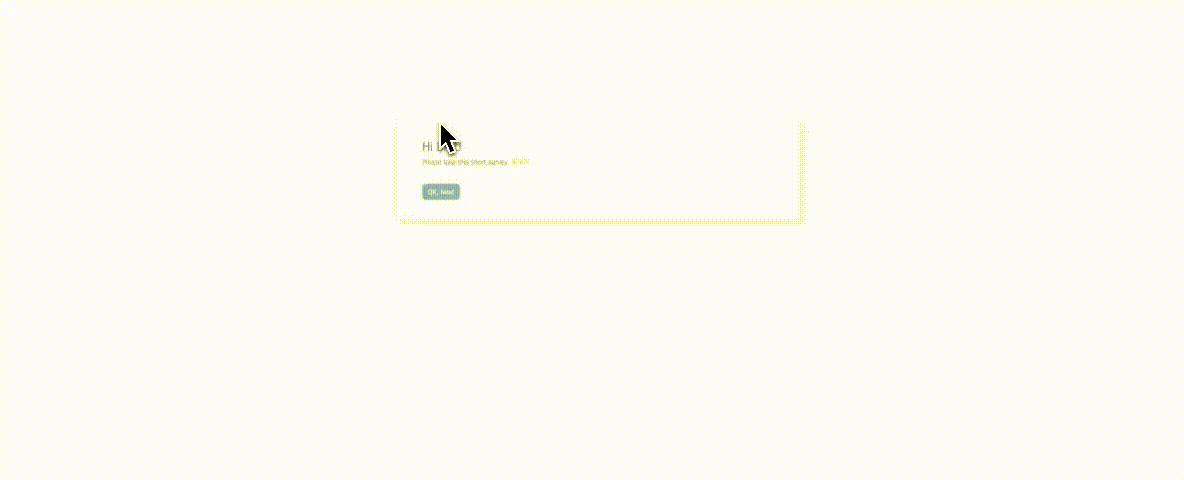
How to Create Your Sleep Survey with HeySurvey: 3 Easy Steps (Plus a Bonus!)
If you’re new to HeySurvey, don’t worry—it’s designed to be super friendly, even if you’ve never made a survey before. Here’s a simple guide to get you from zero to survey hero in no time.
Step 1: Create a New Survey
- Log in or start right away at HeySurvey.com.
- Click the “Create New Survey” button.
- Choose to start from a pre-built template (like the sleep survey template you’ll find below) or select an empty sheet if you want to build from scratch.
- Give your survey a name that will help you recognize it later (e.g., “Sleep Quality Assessment”).
And voilà! You now have a blank canvas—or a ready-made starter—for your sleep survey.
Step 2: Add Your Sleep Survey Questions
- In the Survey Editor, hit the “Add Question” button.
- Pick the question type that fits your sleep question best—think Scale for sleep quality ratings or Choice for yes/no or multiple-choice items.
- Type in your sleep survey questions (for example, from the sample lists in this article).
- Adjust question settings, like marking questions as required, or adding helpful descriptions if a question needs clarity.
- Remember, keep your wording simple and friendly so respondents don’t get stuck.
- You can even add images or GIFs to make your survey a bit more fun!
Repeat this for all your important sleep questions. You can reorder or duplicate questions to speed up building your survey.
Step 3: Publish Your Sleep Survey & Share
- When you’re happy with your questions and design, click “Preview” to see exactly what your respondents will see.
- Use the Designer Sidebar if you want to tweak colors, fonts, or layout for a sleep-themed vibe.
- Click “Publish” to get your survey’s shareable link.
- Share that link via email, social media, or embed it right on your website.
Now you’re ready to gather those valuable sleep insights!
Bonus Tips: Take Your Sleep Survey to the Next Level
- Apply Your Branding: Upload your organization’s logo or customize colors in the Designer Sidebar to make the survey feel like part of your brand.
- Define Settings: Use the Settings Panel to control when your survey opens and closes, limit responses, or even redirect respondents to a “thank you” page after completion.
- Skip Into Branches: Want to skip irrelevant questions based on answers? Use branching logic so respondents only see what matters—perfect for tailoring sleep disorder screens or medication questions.
When you’re ready, just hit the button below to open a free editable sleep survey template in HeySurvey and start customizing your perfect sleep survey today!
Sleep Quality Survey
Why & When to Use
If you want the fastest way to gauge someone’s restfulness, the sleep quality survey is your friend. It shines in clinics during new patient assessments, serves as the backbone for wellness programs, and is a gold mine in research tracking changes over weeks or months.
- This type is perfect for screening out big issues before sending someone for expensive overnight studies.
- For large companies or digital health solutions, it’s the most approachable way to sample sleep satisfaction across diverse groups.
- You’ll also spot broad complaints, like “waking up tired” or “midnight tossing,” long before anyone mentions nightmares or restless legs.
Sample Questions
On a scale of 0–10, how rested do you feel upon waking?
How many nights per week do you wake up more than once?
How often do you experience difficulty falling asleep within 30 minutes?
Rate the overall quality of your sleep during the past month.
How frequently do you feel sleepy during the day?
Key Variations
Across all these use cases, you might swap in phrases like:
- “How satisfied are you with your restfulness?”
- “Did your sleep leave you refreshed and ready?”
- “Do you find your sleep restorative?”
Keeping the questions clear helps pinpoint sleep satisfaction at a glance, opening the door for deeper dives if problems show up.
The Pittsburgh Sleep Quality Index (PSQI) is a validated self-report questionnaire that assesses sleep quality over a 1-month period, widely used in both clinical and research settings. (en.wikipedia.org)
Sleep Duration Tracking Survey
Why & When to Use
When your main concern is how many hours people actually spend in bed, the sleep duration tracking survey comes to the rescue. This method is loved by researchers working with large groups, companies running annual wellness checks, and health apps that may not sync with wearables.
- Think of it as a simple way to monitor “sleep hours” over time, especially if participants forget to log their bedtimes.
- Because it balances detail with ease, it’s a popular tool in population studies and university projects.
- You can also use it as a compliance checker for those following prescribed bedtime routines or sleep interventions.
Sample Questions
What time do you usually go to bed on weekdays?
What time do you typically wake up on weekdays?
How many total hours did you sleep last night?
How does your weekend sleep duration differ from weekdays?
Over the past week, how many nights did you sleep fewer than 6 hours?
Practical Applications
Phrasing can mix it up with:
- “What is your typical bedtime and wake time?”
- “How often do you get 7 or more sleep hours?”
- “Describe your weekly variations in sleep length.”
These sleep duration tracking questions open up conversations on both sleep habits and possible issues, even before the fancy graphs and charts begin.
Sleep Hygiene Survey
Why & When to Use
The world of healthy sleep habits goes beyond a good mattress. Sleep hygiene surveys dig into the details that sabotage—or support—your shut-eye. Behavior change programs, cognitive behavioral therapy for insomnia (CBT-I), and coaching platforms love using these tools to pinpoint problem areas early.
- Want to separate caffeine habits from late-night social scrolling? This survey does it.
- It’s also perfect for measuring change before and after sleep improvement interventions.
- For personal trainers and health coaches, it backs up recommendations with behavioral insight.
Sample Questions
How many caffeinated drinks do you consume after 2 p.m.?
How often do you use electronic devices in bed?
Do you maintain a consistent bedtime routine?
How frequently do you exercise within three hours of bedtime?
How bright is your bedroom when you try to sleep?
What’s Unique
Here are some ways these surveys spice up the conversation:
- “Which healthy sleep habits do you struggle to maintain?”
- “Are screen-free wind-down routines part of your bedtime plan?”
- “What interrupts your sleep hygiene most days?”
Focusing on bedtime routine questions gives real-world clues for simple changes—leading to dramatically better sleep.
The Adolescent Sleep Hygiene Scale (ASHS) is a reliable and valid tool for assessing sleep practices in adolescents, demonstrating satisfactory psychometric properties. (pubmed.ncbi.nlm.nih.gov)
Sleep Environment Survey
Why & When to Use
Our surroundings can work for or against us, and the sleep environment shapes so much of our nightly rest. Whether you’re tracking why guests can’t sleep at a hotel, perfecting a new mattress, or checking ergonomic risks, this survey reveals what’s really happening in those bedroom conditions.
- It pinpoints if a hot room or snoring neighbor is the real reason behind morning crankiness.
- Great for product developers, hotel managers, and teams running ergonomic evaluations.
- It’s also the go-to for before-and-after comparisons (e.g., did blackout curtains actually help?).
Sample Questions
Rate your bedroom’s darkness on a 1–5 scale.
How often are you disturbed by noise while sleeping?
Is your mattress comfortable enough to prevent tossing and turning?
What is your preferred bedroom temperature for sleep?
How often does room temperature wake you up at night?
Why it Matters
Phrases vary between:
- “Describe your usual bedroom conditions.”
- “What ambient noise disrupts your sleep the most?”
- “Are your sleep environment adjustments giving noticeable results?”
These targeted questions cut through guesswork, letting you fix what you can—sometimes as easy as adding a fan or a white-noise machine.
Sleep Disorders Screening Survey
Why & When to Use
Sometimes, sleep troubles signal something bigger—insomnia, sleep apnea, or restless legs syndrome. The sleep disorders screening survey is your speed-pass to spot the early warning signs, crucial for primary care teams and telehealth platforms looking for issues that need urgent follow-up.
- Use these quick questions to sort out common versus complex sleep complaints.
- It’s ideal for patients filling forms before seeing their doctor or completing telehealth onboarding.
- Doing so makes sure no crucial red flags hide behind vague “bad sleep” reports.
Sample Questions
Do you snore loudly enough to disturb others?
Have you been told you stop breathing during sleep?
How long does it usually take you to fall asleep?
How often do you feel an irresistible urge to move your legs at night?
Do you wake up gasping or choking?
Getting Specific
You’ll see these classic tweaks pop up:
- “Would you benefit from a sleep apnea questionnaire?”
- “Are you dealing with chronic insomnia screening issues?”
- “Does your restless legs syndrome interrupt sleep every night?”
Overall, the survey clarifies when quick behavioral advice is enough—or if it’s time to schedule a sleep study, pronto.
Pre-Bedtime Habits Survey
Why & When to Use
What we do in the hour before bed—our pre-sleep routine—sets the stage for the whole night. This survey is a favorite for sleep-coaching apps and studies aimed at understanding which wind-down habits hurt or help our rest.
- It uncovers if meditation, stretching, or reading is a standard part of winding down.
- You’ll also spot if late-night social media or snacking is behind overnight tossing and turning.
- Best suited for digital wellness programs aiming to personalize bedtime advice.
Sample Questions
What activities fill the last 60 minutes before you lie down?
How long before bed is your final meal or snack?
Do you consume alcohol within two hours of bedtime?
How often do you practice relaxation techniques before sleep?
How stimulating is your lighting in the hour before bed?
Why Focus Here
Switch it up with:
- “Which wind-down habits make your pre-sleep routine most restful?”
- “Describe your favorite pre-bedtime activity and its effect on your sleep.”
- “How consistent are your wind-down habits every night?”
Capturing routine patterns just before lights out highlights the quickest wins—sometimes just a swap from doom-scrolling to listening to calming music.
Daytime Functioning Survey
Why & When to Use
It’s not just about what happens overnight—daytime sleepiness or trouble focusing is sometimes the first clue that night sleep isn’t cutting it. Occupational health programs, schools, and wellness managers find these surveys invaluable to justify workplace fatigue interventions or support for students.
- These fatigue survey questions measure how sleepy, irritable, or forgetful someone feels during the day.
- They also reveal links between sleep loss and safety concerns, like dozing off while driving.
- The answers can support changes in work hours, school start times, or HR benefits.
Sample Questions
How often do you struggle to stay awake while driving?
How many days in the past week did you have trouble concentrating?
Rate your typical midday energy on a 1–10 scale.
How frequently do you rely on naps to get through the day?
How irritable do you feel after a poor night’s sleep?
Points to Note
You’ll often see variants, such as:
- “To what extent does daytime sleepiness affect your mood?”
- “Describe patterns in your daily fatigue.”
- “How does poor sleep impact your productivity at work or school?”
This survey type gives clear proof about the real-world effects of lost sleep—making it easier for employers or teachers to take action.
Sleep Medication & Supplement Survey
Why & When to Use
Plenty of people reach for melatonin, herbal teas, or prescription meds to snooze. The sleep aid questionnaire helps clinicians, pharmacists, and research teams understand who depends on what, how well it’s working, and whether there are any hidden side effects.
- You’ll spot melatonin misuse, dependency problems, or patterns of unreported side effects.
- Vital for medical teams tracking prescription renewals or efficacy.
- It’s also popular with digital health platforms monitoring supplement use over time.
Sample Questions
Which prescription sleep medications do you currently take?
How often do you use over-the-counter sleep aids?
Have you experienced grogginess the morning after using sleep medication?
How effective is your sleep aid in helping you fall asleep?
Have you increased your dosage without medical advice?
Getting a Clear Picture
Ways to customize this topic include:
- “Complete our melatonin survey for more tailored sleep advice.”
- “Are your sleep aids causing any unwanted side effects?”
- “How regularly do you change your sleep aid dosage or timing?”
These targeted questions clear up which sleep strategies are helping—and highlight where new guidance or caution might be needed.
Best Practices: Dos & Don’ts for Crafting High-Impact Sleep Surveys
Creating a sleep survey that gets real answers is an art and a science. Researchers and wellness teams agree on a few essential dos and don’ts—miss these, and you might end up with muddy data or confusing results.
Do:
- Use plain, simple language (think 6th-grade reading level) to avoid confusion.
- Stick to validated scales, like the Pittsburgh Sleep Quality Index (PSQI) for quality, or the Epworth Sleepiness Scale (ESS) for daytime sleepiness.
- Randomize the order of especially sensitive or embarrassing questions to reduce response bias and keep answers honest.
Don’t:
- Bombard respondents with too many questions. Aim for 10–15 items to keep things snappy and reduce survey fatigue.
- Combine multiple ideas into one question (“How often do you exercise and drink coffee before bed?”). Always ask about one behavior or outcome per item.
- Overcomplicate—if your audience needs a dictionary, your data won’t mean much!
Sprinkle these sleep survey best practices throughout your design process. The results? Actionable, high-quality insights that make every sleepy answer count.
Related Health Survey Surveys
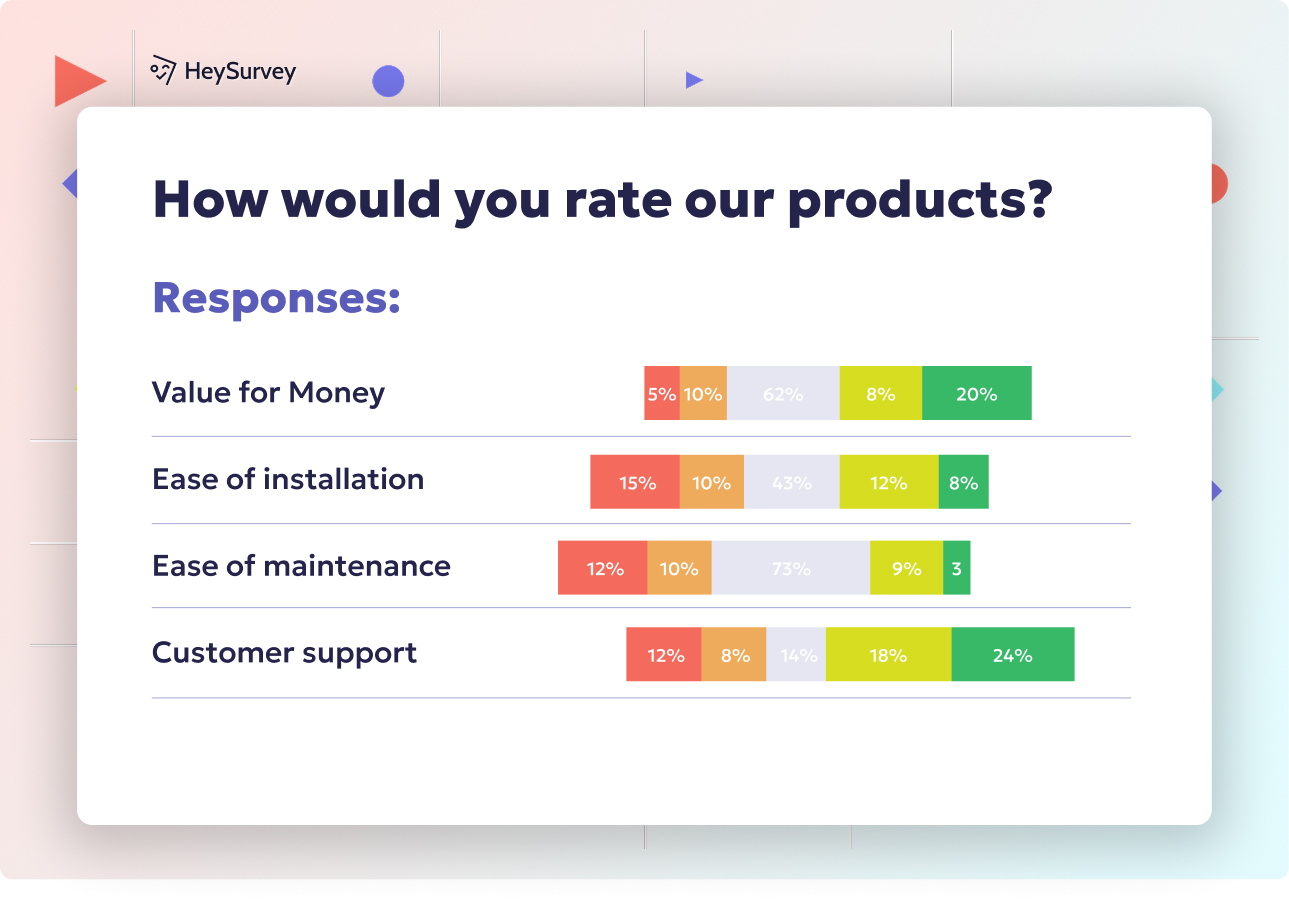
30 Health Care Satisfaction Survey Questions for Better Feedback
Discover 25 sample health care satisfaction survey questions designed to improve patient feedback...
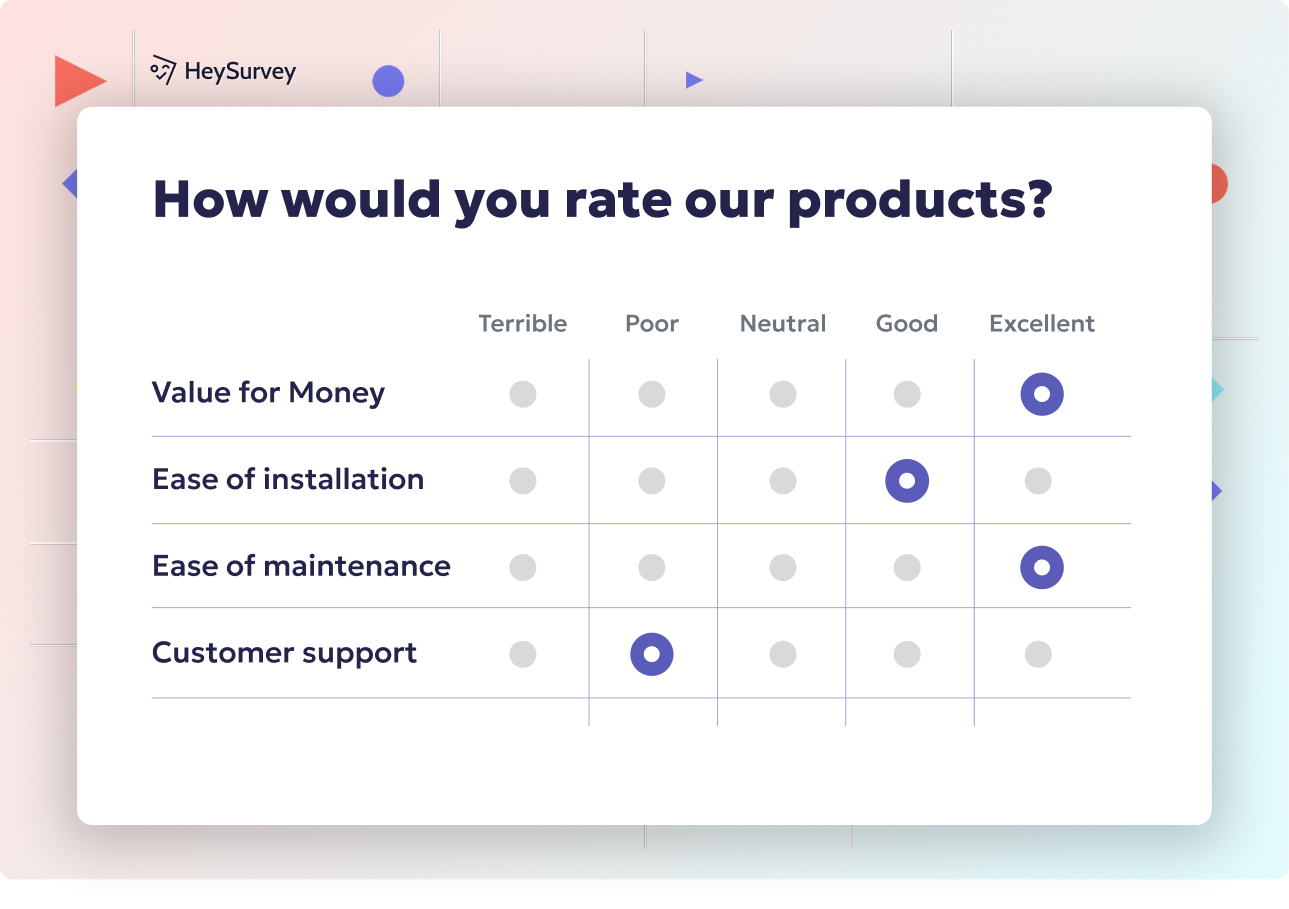
31 Body Image Survey Questions: Types, Usage & Best Guide
Discover 35 expert body image survey questions across 7 proven types to measure body satisfaction...
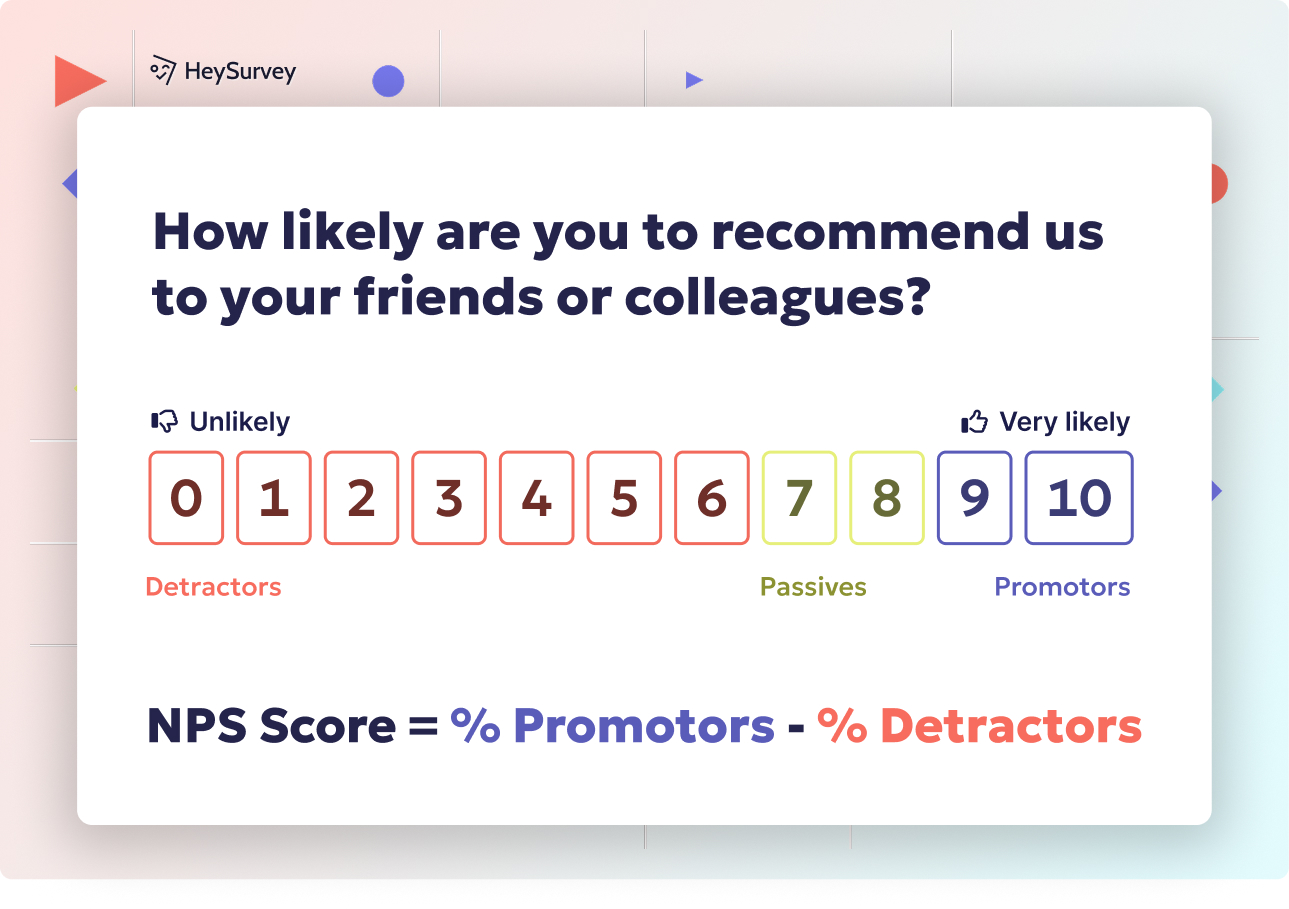
31 Essential Domestic Violence Survey Questions: Types & Uses
Explore 30+ domestic violence survey questions covering types, uses, samples, and best practices ...

